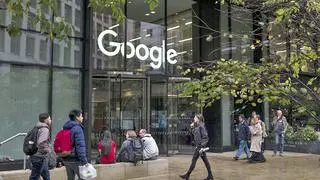The Department of Telecommunications’ (DoT) plan to increase broadband accessibility through public Wi-Fi hotspots is being met with resistance, with the Cellular Operators’ Association of India (COAI) stating it was “illegal” and impacting the “level playing field”.
“Public Wi-Fi networks or for that matter any network on any access technology (ies) is only permitted under a license. As per the provisions of the Indian Telegraph Act, 1885, the activity of establishing, maintaining and working of telegraphs requires a license from the government,” COAI said in a letter to DoT.
“Contrary to the well-established licensing structure, TRAI in its recommendation has suggested that Public Data Office Aggregators (PDOAs) and Public Data Offices (PDOs) be allowed to provide Internet access through Wi-Fi technology without taking a license. Any such service will be in conflict with the existing licensing framework. More importantly, establishing public Wi-Fi networks without license will be illegal, being in violation of the Indian Telegraph Act,” it added.
The letter, dated June 8, a copy of which has been reviewed by BusinessLine , also stated that the under the existing licensing structure, Internet access is provided under the Unified License (UL).
“COAI is of the view that Public Wi-Fi should be allowed only through UL (VNO),” Rajan S Mathews, Director-General at COAI told BusinessLine .
The Telecom Regulatory Authority of India, in its recommendations in March on ‘Proliferation of Broadband through public Wi-Fi Networks’ supported new unlicensed entities with a mere registration with DoT to offer public Wi-Fi services. Under a new framework, PDOs and PDOAs would be allowed to provide public Wi-Fi services to increase the number of public hotspots and make Internet services affordable.
‘Uneven playing field’
COAI said that this will adversely affect the level playing field as licensed operators have to pay levies such as license fees and spectrum usage charges and ensure adherence to various regulatory and security related requirements. Allowing the same to be performed by an unlicensed entity would tilt the playing ground and give an unfair advantage to unlicensed entities. Further, it would result in revenue losses to licensed operators, and have national security implications, it said.
COAI also said it understands from media reports that DoT is planning to delicense V-brand spectrum (57 GHz to 64 GHz), which will further impact telecom service providers (TSPs).
“...delicensing of spectrum such as V-brand for access would be a double hit to existing TSPs as not only the license but also the spectrum will be provided free to entities such as PDA/PDO to provide internet services,” it added.








Comments
Comments have to be in English, and in full sentences. They cannot be abusive or personal. Please abide by our community guidelines for posting your comments.
We have migrated to a new commenting platform. If you are already a registered user of TheHindu Businessline and logged in, you may continue to engage with our articles. If you do not have an account please register and login to post comments. Users can access their older comments by logging into their accounts on Vuukle.